Iran's Sunni Leader Challenges 'Destruction' Of Israel
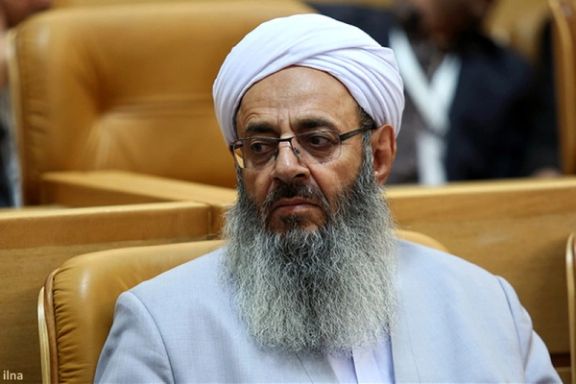
The outspoken leader of Iran's Sunnis has contradicted the government, stating that the obliteration of Palestinians and Israel's annihilation are unattainable.

The outspoken leader of Iran's Sunnis has contradicted the government, stating that the obliteration of Palestinians and Israel's annihilation are unattainable.
Mowlavi Abdolhamid, the Friday Prayer Imam in Zahedan, used his weekly sermon to condemn attacks on civilians without specifically mentioning the militant group Hamas. He stressed that blind allegiance to Islamic groups does not have his approval, affirming, "Extremism from any quarter, when it entails harm to people or children, is unacceptable to us."
Simultaneously, he expressed concern about the current humanitarian situation in Gaza as a consequence of Israel's response to the attacks. The Sunni leader endorsed the concept of a two-state solution for the Palestinian issue, emphasizing the need for a just resolution to the current crisis.
He added, "The reality is that neither Muslims nor Israel, can achieve the destruction of the other one. It's an unattainable goal. Why resort to force when the objective is unattainable?”
His remarks stand in contrast to the stance of the Islamic Republic, which has consistently advocated for the "destruction" of Israel, effectively rejecting the notion of a two-state solution.
In a 2011 conference in Tehran, Iran's ruler Ali Khamenei declared, "Any plan that seeks to divide Palestine is destined for failure."
Iranian authorities exploit every opportunity to underscore the imperative of Israel's "destruction," a slogan that has been accompanied by substantial financial support for militant groups like Hamas and Hezbollah.
However, in the wake of widespread global criticism of Hamas's attack on Israeli territory, Ali Khamenei distanced Iran from the surprising assault in his initial official response.
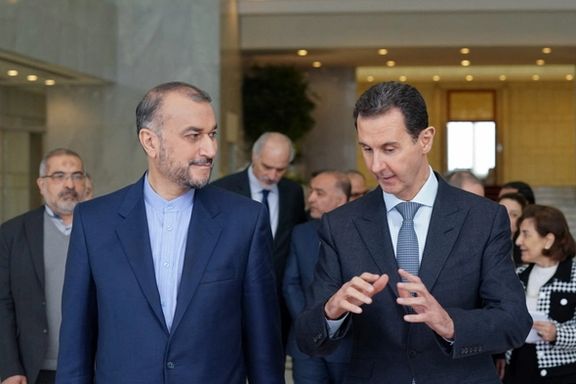
Iran’s Foreign Minister Hossein Amir-Abdollahian has once again claimed that Hamas’ attack on Israel was a purely “Palestinian operation”, although Iran supports the group.
Amir-Abdollahian who was meeting Syrian President Bashar al-Assad in Damascus as part of a regional tour, was quoted as saying that Iranian and Syrian support for the Palestinians is not a secret, but repeated Tehran’s position that it was not directly involved in the attack.
Hamas launched a surprise invasion of southern Israel on October 7, using thousands of forces who killed well over 1,000 Israeli civilians, prompting a siege of Gaza and relentless Israeli bombing of targets in the Palestinian enclave.
The Iranian regime immediately congratulated Hamas, calling the attack a heroic act and organizing street celebration. However, as governments and international media asked if Tehran had a role, Supreme Leader Ali Khamenei tried to distance the regime, saying the attack was a Palestinian operation.
Amir-Abdollahian also told Assad that “the resistance is capable of resisting against the Zionist regime for a long time.”
The Islamic Republic uses the term “Resistance Front” to refer to many of its proxy militant armed groups around the region, and the Syrian regime. Lebanese Hezbollah and Hamas are the largest of these groups receiving hundreds of million dollars a year from Iran, in addition to weapons and training.
The Israeli military has surrounded the Gaza Strip with the aim of an eventual ground operation that according to officials is aimed to eliminate Hamas as a fighting force. Hundreds of thousands of Gazans have been told by Israel to evacuate to safer areas to reduce civilian casualties.
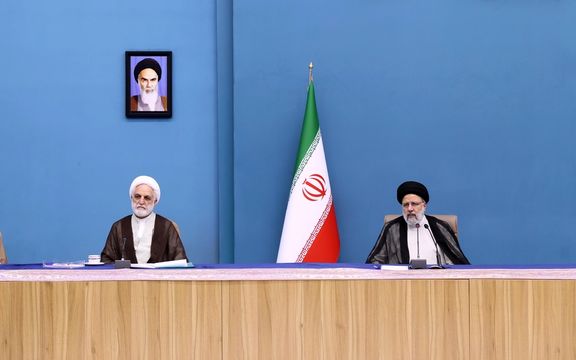
A prominent politician in Tehran has suggested that President Ebrahim Raisi may seek another review of four bills allowing Iran to join the FATF conventions.
The FATF (The Financial Action Task Force) is a G-7 initiative to combat money laundering and financing terrorism. The four bills stuck in Iran's legislative system since 2017 due to opposition by hardliners include measures to join the convention against organized crime, to amend “the anti-money laundering law,” to accept the convention against financial support for terrorism” and a “bill to amend the law against financial support for terrorism.”
The former head of the Iranian parliament's national Security and Foreign Relations Committee Heshmatollah Falahatpisheh also told Etemad Online that "if it is true that Raisi has now asked Supreme Leader Ali Khamenei to order the Expediency Council to start another review of the FATF bills, then we should be sorry for the country's national interests as Raisi was one of the opponents of the bills."
The bills were handed over to the Expediency Council, a group of former officials trusted by Khamenei, for review after it changed hands between the parliament (Majles) and the constitutional watchdog the Guardian Council without any progress.
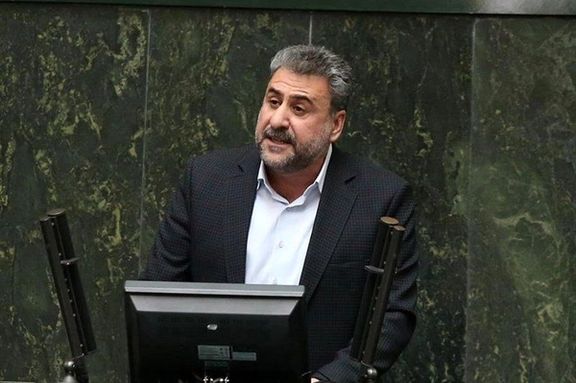
In addition to the limitations imposed on Iran's international trade and banking due to US and other international sanctions, adherence to the FATF conventions is essential for international traders. It provides assurance that the funds used by Iran in transactions will not be funneled into money laundering, cross-border organized crime, or terrorism financing.
Hardliners, however, have been strictly opposing the bills saying openly that joining the conventions would bar Iran from sending money to groups such as Hamas, Islamic Jihad and Hezbollah, designated as terrorist groups by key countries.
Falahatpisheh charged that hardliners have been benefitting from illicit trade and financial transaction while Iran has been on the FATF blacklist. He added that Raisi strongly opposed the bills as an Expediency Council member and the head of Iran's Judiciary. He said that Raisi as President has now realized that joining the FATF and returning to the nuclear deal with the West are necessary to improve Iran's ailing economy.
Meanwhile, Expediency Council member Mohammad Sadr also acknowledged in an interview on Wednesday that "many of the opponents of the JCPOA and FATF have realized the significance and necessity of the nuclear agreement and the anti-money laundering conventions.
Sadr emphasized that without the FATF, Iran's existing economic challenges will remain unsolved, and the system is susceptible to encountering new issues.
Some politicians and many commentators and economists have been insisting that passing the bills are essential for conducting financial transactions with the world. Many had also pointed out that even if the sanctions are lifted, Iran will not be able to conduct international trade and banking without accepting the terms of the FATF.
Iran's radicals and hardliners are being blamed for the impasse in the country's economy, politics and foreign policy while almost everyone knows that all the decisions originate with Khamenei and dictated to the system. However, former Reformist politician Jalil Rahimi Jahanabadi has called for a powerful reformist minority at the Majles to counterbalance hardliners.
He said: "We need to harness and control the radicals. A powerful reformist minority can have a good impact on the Majles." It is interesting that the reformist figure is happy only if a minority comes from the reform camp rather than demanding to win the majority in parliament.
Raisi had called for debating the FATF and JCPOA before leaving for New York to take part in the UN General Assembly in September, however, the issue popped up again after the brutal Hamas attack on Israel last week. Iran finds itself in the crosshairs of international criticism for being the main supporter of Hamas. Khamenei was forced to say publicly that the regime played no direct role in the attack.

A wave of anti-Israeli remarks came on Friday from authorities in Iran days after a surprise attack by Hamas on Israel that killed and injured thousands.
Hassan Rouhani, the former Iranian president, has issued a statement condemning Israel for declaring an all-out war against Hamas in Gaza where the militant Hamas group has its base.
Rouhani said that the current situation highlights the “suffering” endured by the “people of Palestine” inflicted by Israel’s “Zionist Regime for the past 75 years.”
The state of Israel was established in 1948 and recognized by the United States at the same time.
“Censorship of the truth, one sided accounts of events, and political and media repression,” Rouhani mentioned as examples of what the Palestinian people have had to deal with.
The former President's remark contrast with the behavior of the Iranian regime that has denied basic freedoms to Iranians for 44 years. It has killed thousands of protesters in recent years and jailed tens of thousands of people, in addition to thousands who have been hanged.
Meanwhile, a representative of Iran’s ruler Ali Khamenei in the southwest province of Khuzestan has also issued remarks praising Hamas’s attacks on Israel.
Abdolnabi Mousavi-Fard claimed that any scene of Hamas fighters using violence against Israeli civilians is fabricated. “My regret is that some people think Israelis are innocent,” he added.
The Islamic Republic is the main supporter of Palestinian militant group such as Hamas, leading to speculation about Iran’s direct involvement in the October 7 attack.
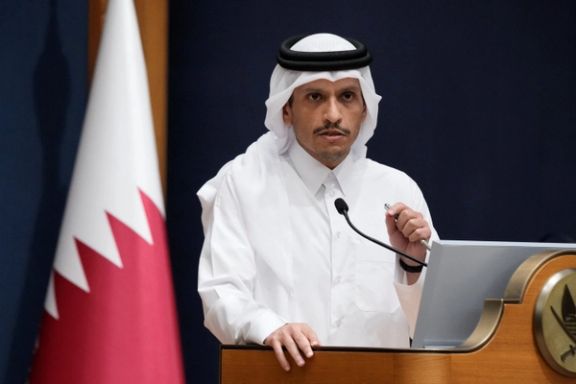
Updated - Qatar said on Friday that it is committed to fulfilling an agreement with Iran and the US on $6 billion in Iranian funds released into Qatari banks.
In a news conference with US Secretary of State Antony Blinken on Friday, Qatari Prime Minister Sheikh Mohammed Bin Abdulrahman al-Thani was asked if his government had agreed with the United states to freeze the funds that were released from South Korea in September, after the bloody attack by Hamas against Israel.
The Prime Minister in a somewhat vague answer in Arabic said, "Regarding the media reports about freezing Iranian funds in Qatar, the state of Qatar is always committed to any agreement, and every step must be done through consultations with other partners that fund – the money here in Qatar, is there. And Qatar will focus at the priorities of – need not do anything that will escalate the situation in the region."
The Washington Post reported on Thursday that US Deputy Treasury Secretary Wally Adeyemo had told House Democrats that the Biden administration and Qatar's government had reached a deal to re-freeze the funds in the light of events in the Middle East. Adeyemo reportedly said that after the October 7 bloody Hamas attack on Israel and the death of more than 1,000 civilians, the US and Qatar reached the deal to deny Iran the use of the funds for buying non-sanctionable goods.
CBS News called it a "quiet understanding", not a formal agreement
Iranian state news agency IRNA, however, reported on Friday that Qatar's Central Bank Governor Bandar bin Mohamed bin Saud Al Thani had denied the reports in a meeting with his Iranian counterpart Mohammad-Reza Farzin on the sidelines of the International monetary Fund summit in Morocco.
"The rumors about the refreezing of Iran's funds in Qatari banks were of no real value, and were more like a joke and media game," the Qatari official said, according to IRNA, which is the government's official news website.
He added that “Qatar is fully committed to all its obligations with Iran, and there is no obstacle to bolstering banking relations between the two countries.”
The Biden administration reached a hostage release deal in August to allow South Korea to unblock $6 billion of accrued Iranian oil income and transfer the money to Qatar in exchange for the release of five Americans held by Iran. The deal led to sharp criticism by Republicans, some Democrats and Iranian American activists, who labeled the released funds as “the biggest ransom payout in history”, which would embolden the Iranian regime and encourage hostage taking around the world.
A bipartisan bill has been introduced in the US Senate to stop the use of the funds by Iran. More than 100 House Republicans backed a bill to refreeze the $6 billion, lawmakers announced on Thursday.
“A month ago… the Biden Administration unfroze $6 billion and made it available to Iran,” said Congressman August Pfluger who introduced a bill to block Iran’s access to the fund. “This $6 billion will be used to backfill the money that Iran is paying to Hamas if we don’t act. Since the Administration refuses to permanently freeze the funds, Congress will.”
Republican Senator Joni Ernst on Friday told Fox News that "President Biden must immediately freeze the $6B that emboldened more of Iran’s proxy terrorism. End the appeasement."
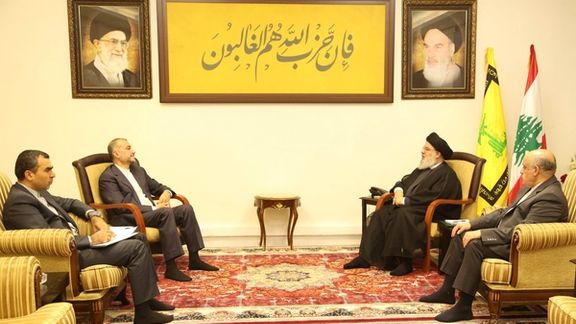
Iran's foreign minister on Friday warned of escalating violence in the Middle East if Israel’s attacks on the Gaza Strip don’t halt immediately.
Hossein Amir-Abdollahian and the head of militant Lebanese group Hezbollah, Hassan Nasrallah, met in Beirut to discuss the war that started last week after Hamas attacked Israel killing more than a thousand civilians and taking more than a hundred people hostage.
The foreign minister is on a tour of the region to meet with powerful militant groups in Iraq, Lebanon and Syria to mobilize support against long-time foe Israel.
Speaking to journalists after meeting with his Lebanese counterparts, Amir-Abdollahian said actions taken by Hamas over the weekend were in response to policies of Benjamin Netanyahu, the Israeli Prime Minister, an avid critic of the ruling clerical regime in Iran.
“If these organized war crimes that are committed by the Zionist entity don’t stop immediately, then we can imagine any possibility,” said Amir-Abdollahian.
The statement comes after both Iran’s ruler, Ali Khamenei, and President Ebrahim Raisi extended congratulatory remarks praising Hamas for its “courage and bravery” after their air land and sea attack on Israel.
Iran is a supporter of Hezbollah in Lebanon and Hamas in Gaza, though it has denied involvement in the recent attacks on Israel. The Washington Post and the Wall Street Journal have quoted sources who have said that Iran is complicit in the Hamas attacks.
The visit comes amid growing international concerns that the war could spread to Lebanon’s border and the wider Middle East given high animosity and tensions in the region.